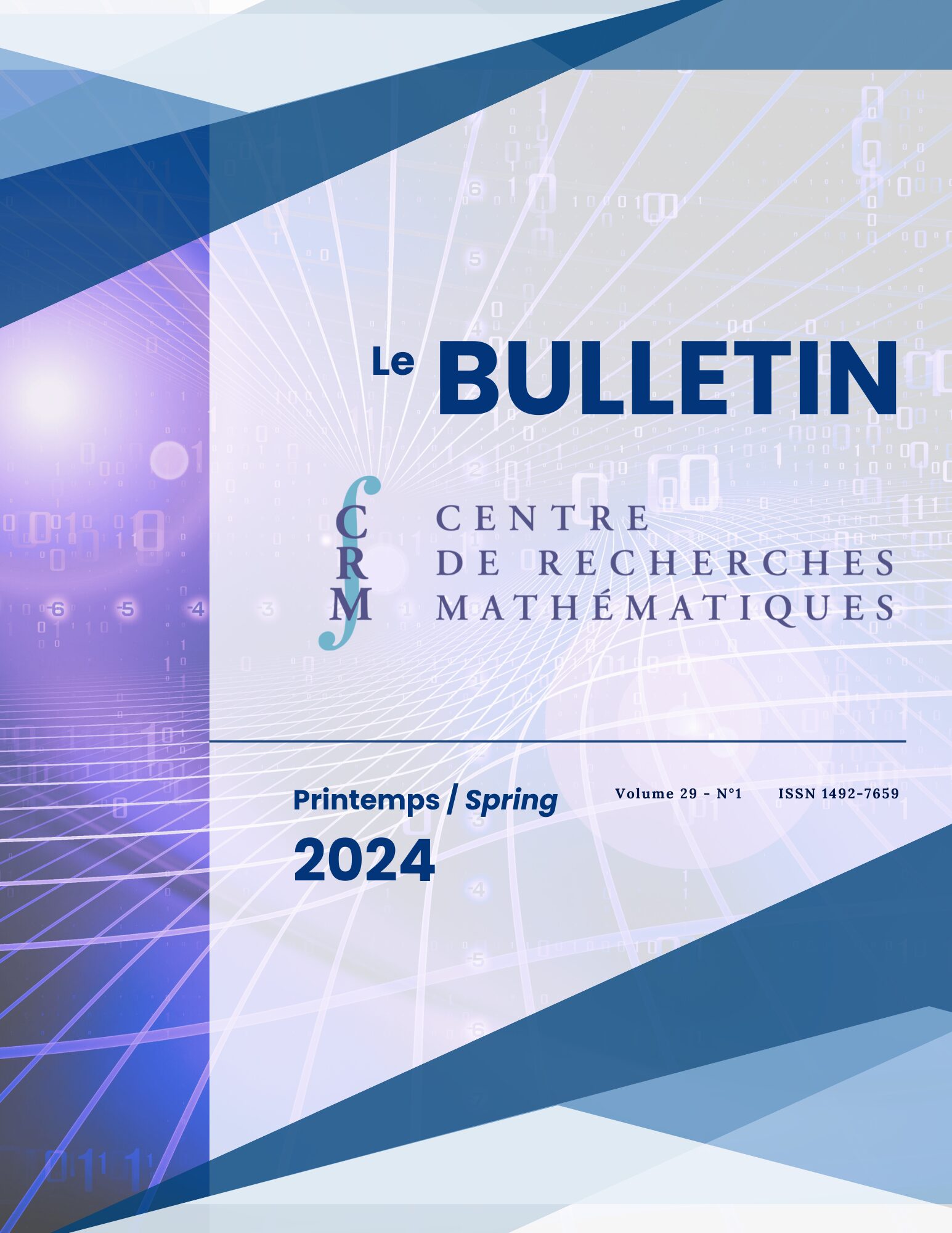Simons-CRM Scholar-in-Residence Program
The Centre de recherches mathématiques (CRM) continues its call for proposals for its scholar-in-residence program. This program, funded with the generous support of the Simons Foundation, is directed towards exceptional researchers in mathematics and related areas at both the junior (less than 10 years since PhD) and senior levels, and will permit the CRM to invite for extended visits such researchers visiting from outside the local CRM network. During their visit, senior researchers will hold the title Simons CRM Professor; junior researchers will be designated as Simons CRM Scholars.
The scholars-in-residence will be chosen to enhance the manifold research activities held at the CRM. In particular, they will participate in and enrich the CRM thematic programs. They will also contribute to the collaborative research activities of the CRM research laboratories.
The visits of scholars-in-residence will be between one and six months in length. The support covers round-trip travel to Montréal and the costs of local accommodation, including family accommodation when needed. Senior researchers will additionally be provided with a research budget for the purpose of inviting collaborators to visit them during their residency. In exceptional circumstances, the CRM may also be able to facilitate visits by paying the home institutions of scholars-in-residence for a one-course teaching release.
Applications may be submitted by the proposed scholar-in-residence or by a local researcher, CRM laboratory, or CRM event organizer, on behalf of the proposed visitor. Please include the following documents:
- A cover letter written by the proposed candidate indicating the scientific justification for the visit and preferred dates;
- A current CV of the proposed scholar-in-residence;
- A letter of support from a CRM-affiliated individual or research group, or event organizer, when appropriate.
The CRM’s International Scientific Advisory Committee will consider proposals four times per year. The corresponding submission deadlines are January 10, April 1, July 1, and October 1. The intended start date of the research visit should be at least 8 months after the submission deadline.
The CRM is proud to subscribe to the Université de Montréal’s policy on adapting to cultural diversity and is committed to taking into account the diversity and the systemic and individual barriers to access (for example, related to ethnic origin, gender, disability) when selecting visiting researchers.
Applications should be submitted to the CRM at simons@crm.umontreal.ca.



